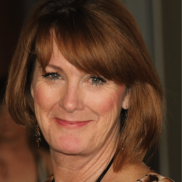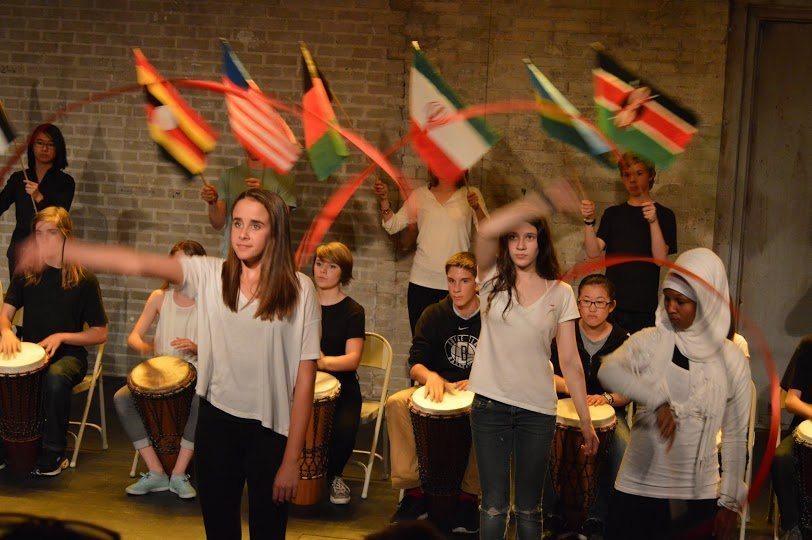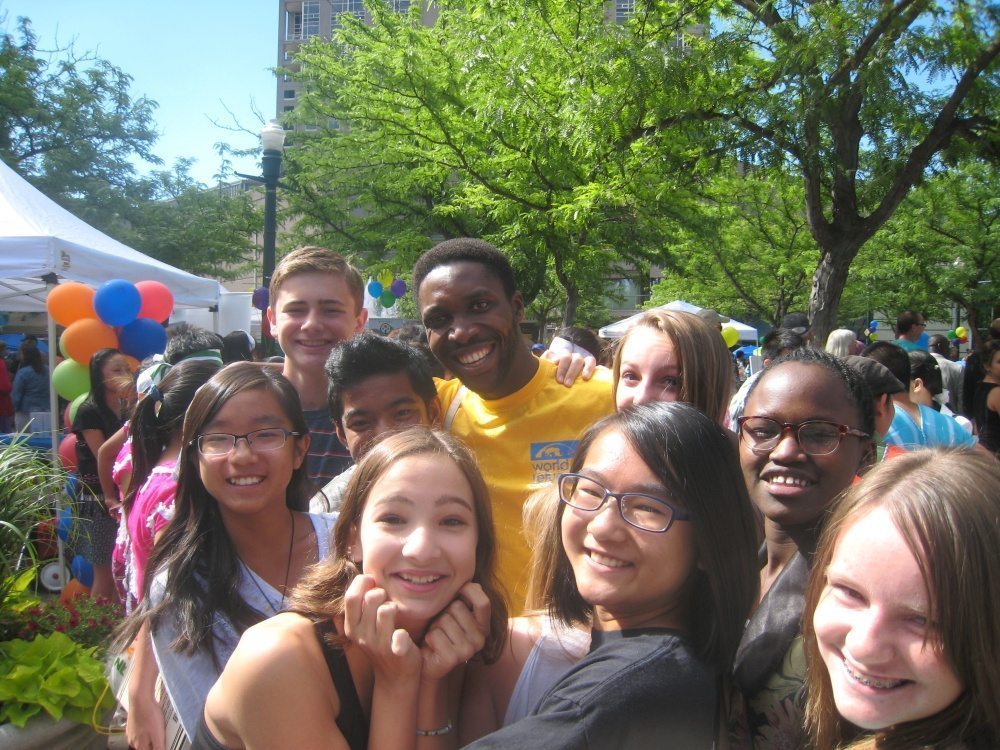Diane Williams: Poetry and Performance in Community

Since Boise’s designation as a refugee hub almost ten years ago, Idaho’s capital has seen its refugee population grow exponentially. The new arrivals struggle to rebuild their lives in America, but for teenage refugees, the challenges of navigating adolescence in an unknown culture can be particularly daunting.
“These students need a way to tell their stories, to be listened to, and understood,” observes Diane Williams, a member of the Boise State Writing Project who attended the Memorial Library’s first rural teachers’ group in 2007 and now co-leads its Idaho Satellite Seminar. Diane teaches a combined 7th and 8th grade humanities class at Anser Charter School, covering a two-year curriculum that includes World War II and the Holocaust, the Universal Declaration of Human Rights, Africa, and Refugees.
In late spring of 2014, after the class completed its in-depth study of the Holocaust, one 13-year-old student familiar with the refugee community approached Diane. She knew that refugee teens were often misunderstood, ostracized, and sometimes bullied at area middle schools. Her passion to help them led an entire junior high school to powerful social activism.
Over the summer, a small leadership team of students worked with Diane and fellow language arts teacher Shannon Twenter. They came up with Story, Humanity, Home, a life-changing, language-rich, collaborative project that ran from December 2014-May 2015 and culminated in the publication of a remarkable anthology of poetry and an original performance piece at the city’s contemporary theater. The program, which received a Memorial Library mini-grant, engaged 103 Anser middle school students with 24 African refugees in Hillside Junior High School’s Bridge Program. By sharing their stories, the two student groups built bridges to understanding that continue to impact their communities.
As the project’s first step, Anser students studied the plight of each refugee group and read accounts of refugees and the struggles they face. The Agency for New Americans provided sensitivity and trauma training to ready them for their interactions and interviews with the refugee students. It was a solid beginning, but many hurdles lay ahead, especially the language barrier. Most of the Hillside students had only been in the U.S. for a few months. Still, the two groups kept at it, communicating through the arts and technology, and eventually, through words.
Though she has been teaching more than 21 years, Diane says proudly, “I have never seen students persevere through such challenges to make something work.”
Hillside students came to Anser each Thursday to share stories and break down cultural barriers, forming inseparable bonds while crafting moving poetry that reflects the refugees’ experiences. Diane recalls that “everyone knew the project was necessary, but no one knew we would be creating such a powerful experience for so many people.”
The Anser students’ poetry was published in a high quality book and distributed to every school in the Treasure Valley and through the public libraries, reaching thousands of students, faculty, and community members. In April, the students presented sold-out productions of their performance piece, Story, Humanity, Home – More Than Words, at the Boise Contemporary Theater. Both refugee and Anser students took to the stage again in June to slam their poetry during Boise’s World Refugee Day.
The ripple effects of the project continue. Foremost, Story has helped to create an atmosphere of understanding between these student ambassadors, which has led to greater appreciation of refugee students in the schools. It received positive press coverage, and several participating students were invited to address a statewide Idaho Refugee Conference. Other schools throughout Idaho have reached out to Diane for guidance on implementing this kind of program in their own districts. In addition, students and faculty are part of the Compassionate Boise Leadership Team, where the Story project is one of only six highlighted and supported by this local coalition of business and community leaders.
Christina Bruce-Bennion, program director for the Agency for New Americans, was deeply impressed by how the two groups of students “overcame their initial trepidation and concerns” and by the end of the program, had “blended with each other doing completely normal teen things.”
Most important, though, the students continued to stay in touch even after the school year came to a close. Their friendships and commitment to make their city a more tolerant and compassionate place to live are a gift Story, Humanity, Home has given Boise.




